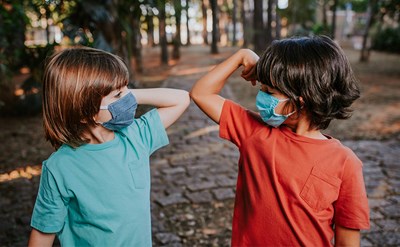Respiratory syncytial (sin-SISH-uhl) virus, or RSV, is a common respiratory virus that usually causes mild, cold-like symptoms. While most people can recover on their own in a week or two, RSV can be severe for some individuals.
People at heightened risk for severe illness from RSV include premature infants, young children with congenital heart or chronic lung disease, people with weakened immune symptoms and older adults, especially those with underlying heart or lung conditions.
Symptoms of RSV are consistent with the common cold or flu and typically appear within four to six days of infection. They can include runny nose, decreased appetite, coughing, sneezing, wheezing, and fever. In very young infants with RSV, the only symptoms may be irritability, decreased activity, and breathing difficulties.
Seek immediate medical attention or go to the nearest emergency department if you or anyone at risk of severe RSV infection has:
- Difficulty breathing
- High fever
- Bluish color to the skin, particularly on the lips and in the nail beds
- (For children under two months) fever above 100.4 with these symptoms
Prevent the spread of RSV by covering coughs and sneezes, regularly washing hands, and taking the same precautions that prevent cold and flu-like symptoms.
 American College of Emergency Physicians
American College of Emergency Physicians







